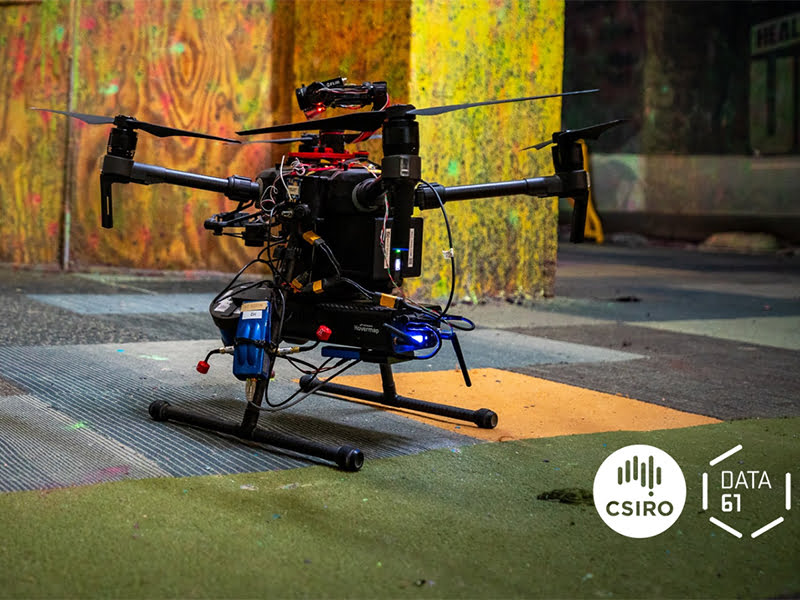A successful funding round has landed $32 million for drone mapping and data analytics startup Emesent.
After an oversubscribed series A funding round, led by Australian investment firm Perennial Partners, Queensland-based Emesent received US$23 million including investments from New York-based Tiger Global and Canadian TELUS Ventures.
Local investment came from Main Sequence and Archangel Ventures, which were lead partners during Emesent’s seed round.
The funding will be used to open offices in the US and UK as well as extend the company’s services to more industries. Emesent chief executive officer Stefan Hrabar said the company could now double the size of its engineering team with growth focused on data analytics.

“We have grown from seven to 130 staff in just three years, by establishing ourselves as a global leader in our industry, with more than 300 customers in more than 40 countries,” Dr Hrabar said.
“Autonomous data capture and analytics is providing significant benefits to the mining and infrastructure sectors, with very clear returns on investment in terms of safety, productivity and yield.”
After more than 10 years of CSIRO research, Emesent was spun-out to commercialise a 3D LiDAR mapping unit called Hovermap. The system can conduct surveys of underground mines in 15 minutes where it would otherwise take up to three hours.
Users can conduct walking scans or mount the unit on a drone, vehicle or backpack. When installed on a drone, Hovermap allows autonomous flight without a GPS and collision avoidance in all directions.
Emesent has seen a big uptake of its technology in the mining sector, with clients like RioTinto, Glencore, and Anglo American.
Hovermap technology is responsible for producing the world’s first fully autonomous drone flight beyond line-of-sight in an underground mine. This feat took place in Western Australia, 600 metres deep.
Despite this success, Dr Habrar said the time was right to expand to new sectors.
“Our drone autonomy, LiDAR mapping and analytics technology will certainly benefit the architecture, engineering and construction (AEC sector), as well as the oil, gas and defence markets,” Dr Habrar said.
During the first seed funding round led by Main Sequence, Emesent raised $3.5 million for its launch at the end of 2018.
Main Sequence is the firm that manages the CSIRO Innovation Fund. This came after the co-founders Dr Stefan Hrabar and Dr Farid Kendoul received $2.5 million through the now defunct CSIRO accelerator program ON.
After three years of preparation, a collaborative team of Emesent alongside CSIRO Data61 and the Georgia Institute of Technology finished second in the DARPA Subterranean Challenge. As runners up of the ‘Olympics for Robotics’, the team took home a $1 million prize.
Do you know more? Contact James Riley via Email.

